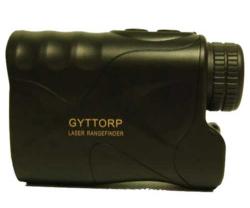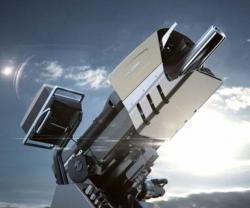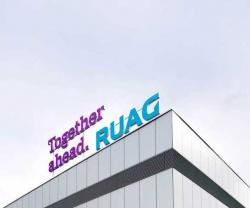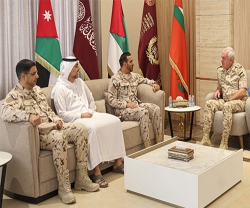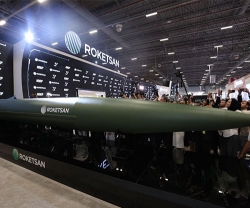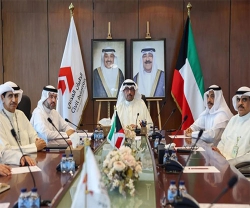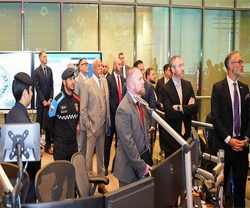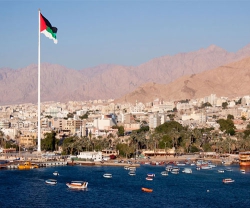RUAG Space to Deliver Subsystem for Solar Orbiter
26.04.2013 Europe
As one might guess from the name of the mission, the European Space Agency’s new science mission will be focusing on performing a study of the Sun, beginning in 2017.
Solar Orbiter will be heading closer to the Sun than any previous satellite. At a distance of just 60 solar radii, the satellite will observe the Sun in painstaking detail. Scientists expect that this will provide a significant boost to our knowledge of solar physics.
Because of how close it will get to the Sun, the satellite will be exposed to solar radiation equating to around 17.5 kW/m2. A special sunshield (not part of the RUAG Thermal Hardware Subsystem) is placed on the Sun-facing side shades and protects the satellite from the bulk of this enormous solar radiation exposure.
Nevertheless, the entire satellite is also encased in an additional layer of thermal insulation developed by RUAG Space. Composed of several individual layers of metalized polyester and polyimide film, this insulation keeps the inside of the satellite at a tolerable temperature for the sensitive measuring devices. Extra support is also provided by special radiators which use highly reflective mirrors to dissipate the heat generated by on-board instruments into space.
RUAG Space emerged as the successful bidder following Astrium’s invitation to tender for the development, construction and delivery of the Solar Orbiter satellite’s thermal hardware subsystem – being ranked first among its competitors. In contrast to other projects, being in charge of a whole subsystem has meant having to choose and manage further subcontractors. This required RUAG Space to issue an international invitation to tender according to ESA guidelines, and in the end the contract for the special radiators was awarded to Astrium in Spain.
7 million Euros, this is the single biggest thermal systems contract for RUAG Space since the department was set up. Around 60% of the project budget should remain within RUAG Space itself as added value.
Solar Orbiter will be heading closer to the Sun than any previous satellite. At a distance of just 60 solar radii, the satellite will observe the Sun in painstaking detail. Scientists expect that this will provide a significant boost to our knowledge of solar physics.
Because of how close it will get to the Sun, the satellite will be exposed to solar radiation equating to around 17.5 kW/m2. A special sunshield (not part of the RUAG Thermal Hardware Subsystem) is placed on the Sun-facing side shades and protects the satellite from the bulk of this enormous solar radiation exposure.
Nevertheless, the entire satellite is also encased in an additional layer of thermal insulation developed by RUAG Space. Composed of several individual layers of metalized polyester and polyimide film, this insulation keeps the inside of the satellite at a tolerable temperature for the sensitive measuring devices. Extra support is also provided by special radiators which use highly reflective mirrors to dissipate the heat generated by on-board instruments into space.
RUAG Space emerged as the successful bidder following Astrium’s invitation to tender for the development, construction and delivery of the Solar Orbiter satellite’s thermal hardware subsystem – being ranked first among its competitors. In contrast to other projects, being in charge of a whole subsystem has meant having to choose and manage further subcontractors. This required RUAG Space to issue an international invitation to tender according to ESA guidelines, and in the end the contract for the special radiators was awarded to Astrium in Spain.
7 million Euros, this is the single biggest thermal systems contract for RUAG Space since the department was set up. Around 60% of the project budget should remain within RUAG Space itself as added value.
Latest news
Latest events
DSEI 2025
09 - 12 Sep 2025Excel, London - United KingdomIntersec Saudi Arabia
29 Sep - 01 Oct 2025Riyadh International Exhibition & Convention Centre - Saudi ArabiaDubai International Air Chiefs’ Conference (DIACC 2025)
16 Nov 2025Atlantis, The Palm Dubai - United Arab EmiratesDubai Airshow
17 - 21 Nov 2025Dubai World Central (DWC) - United Arab Emirates




